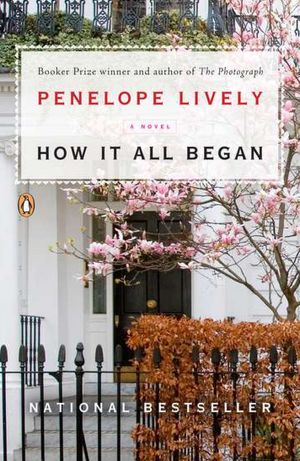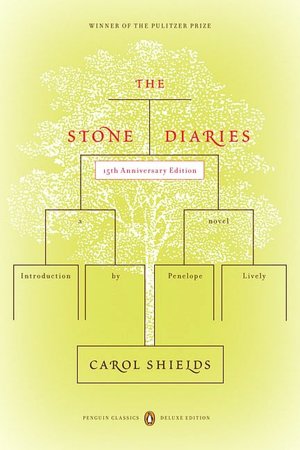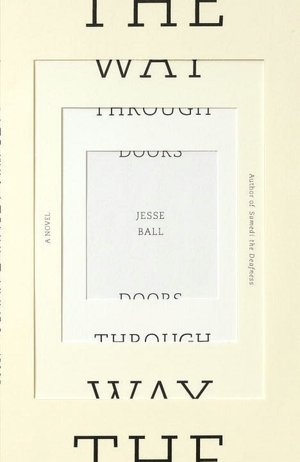Trina McNeilly is a mom to a brood of four, a freelance writer and a self proclaimed style scout. When she isn't wrangling or writing she dabbles in design and is always looking for the lovely. Trina has been blogging for 4 years and writes daily at her lifestyle blog, la la Lovely where she shares her lovely finds. She's learned that the most lovely things in life are not things at all, and well, she writes about that too. In her, very few, spare minutes she is busy making her childhood home her now grown up home. I love books, almost every kind possible actually. I love the way books look, always adding soul to a home. I love the way books feel, there is just something about turning each page that is rather comforting. And most of all, I love what is on the inside of books . . . words. Words that, on their own, might not mean much but strung together form a story; a story once lived sharing a life to learn from perhaps just a story to get completely lost in. Truthfully, that is what I look for most in a book . . . a way to get lost, a way to loose myself. And yet, almost every time, at some point in the story, I am found and find more of myself than I knew before. And when I find that I have been found in a book, that particular story always seems to stay with me. Sometimes it haunts me with its grasping tale when I see specks of the story in real life days. And, sometimes it reminds me of a truth I’ve needed to know and am trying to live and other times it is a teacher that helps me to string my words into a story of their own.
My own reading habits vary (as life does with 4 littles) but my regular and most familiar pattern is to read a couple of books at a time. I love to always have a story ready at hand to escape to and I always find the need to be reading a book to help better me as person (which can have vast range of topics from motherhood to business).
These are the books you would, most recently, find making their home on my nightstand:
The Flight of Gemma Hardy
By Margot Livesey
If you were to ask me my all time favorite book I would likely reply Jane Eyre. No explanation needed. Any retelling of that story sparks interest, but also skepticism. While running through the airport last month, this title caught my attention and when I read that it was a new telling of Jane Eyre I was curious. I continued on to read that Gemma was from Iceland and resides in Scotland on the somewhat mystical Orkney Islands and . . . I was sold. I had never heard of the Orkney Islands but I had to know about it.
Although The Flight of Gemma Hardy, for the most part, followed the story line of the classic, Jane Eyre, I inevitably knew what was coming next, but I didn’t quite always know how, and I found myself looking for how the story varied and the differences and uniqueness of each story.
I found Gemma’s story, although very sad at times, to really be one of hope. Hope that your story can end well. That good can come of bad. And that in the midst of trials, when you can’t seem to find your way, or even yourself, if you keep moving forward, choose to be brave in the everyday and pay attention to your thoughts, it is there that you will be found. Gemma ran, only to ask herself “Why had I left if I was going to carry him with me every step of the way?” Yet in the running she was found. And she found the one thing she wanted so badly, “to be well regarded and well loved.” And isn’t that what we all want?
The Gifts of Imperfection
by Brené Brown
This is the kind of book that ruins you in all of the right kind of ways. But I should confess, I wanted to get ruined when I picked this book up. The subtitle goes like this, “Let Go of Who You Think You’re Supposed to Be and Embrace Who You Are. Your guide to a wholehearted life.” The truth is, I have a lot of ideas of who I think I’m supposed to be, and who others want me be but I’m still working on accepting and then embracing who I really am. Brown starts off this internal journey by saying that “owning our story and loving ourselves through that process is the bravest thing that we will ever do.”
It’s chapter after chapter of defining words that we effortlessly throw around in our daily lives without knowing the true meaning or implication of that word. For example the original meaning of the word courage is, “to speak one’s mind by telling all one’s heart.” And to become more courageous you have to practice courageous acts, “you learn courage by couraging.” The idea that it takes courage to share what you really want or need or who you are, actually makes complete sense as it something most of us hold back from doing in fear of not being accepted.
The Gifts of Imperfection is a book that I’m sure I’ll reference for a lifetime. If you aspire to live an authentic wholehearted life than I think you will enjoy getting ruined as much as I am.
The Tales of the Seal People
Scottish Folk Tales
Duncan Williamson
I have a thing for fairy tales and folklore. I’m always up for anything that is a little magicky and requires a heavy dose of make believing.
After reading The Flight of Gemma Hardy and doing a little research on the fascinating Orkney Islands, I read that The Tales of the Sea People was a book that Margot Livesey used as research when writing her book, The Flight of Gemma Hardy. When I read that these were a collection of stories from Scotland that were somewhat guarded and scared to the fishermen and people that lived by the sea, I was instantly intrigued. My great grandma was from Scotland and I wonder if she ever heard of, or maybe even told, any of these tales herself. Although these are folk tales to some, somewhere down the line they were very real happenings to the originator of the story.
The Tales of the Seal People is a collection of short stories, which are simply written and read as if someone is actually speaking the story. All of the stories are centered around Silkies (Seal People) who were part human and part seal. Each story is an intertwined tale of a person who lived by the sea and their encounters with the Silkies. It’s interesting knowing that these are likely common stories told among Scottish children and up until this point I had never even heard of a Silkie. I love reading these stories to my children and I even love reading them all on my own. I find that after I read one, I always want to read another. And I’ll surely never look at a seal the same way again.



















 In my house growing up, the fall months brought up the smell of earth from the dirt basement. It’s a difficult smell to try to describe. It’s not rich like the smell of garden soil and nothing like the particular scent attached to the concrete basements of my friends. It’s the perfume of a particular brand of old Yankee house that’s been sitting on the same patch of dirt for two and half centuries---a combination of must and dirt, and more often than not, the stink of an unfortunate chipmunk that found its way through a chink in the stone foundation. In October, a month that’s goulish without even trying, our house could smell like death itself.
To combat the scent of the damp and dying, my mom kept a small pot on the back burner of the stove. In it she’d pour a glug of apple cider and mix it with water from the tap. If there was an apple peel that would go into the pot, along with dried orange peel if we had any, a stick of cinnamon, allspice, and cardamom. Every hour or two, we’d add more water to the mixture, which became thick and dark the longer it simmered. The burbling spices would mask the smell of rotting vermin and simultaneously herald in the new season.
In my house growing up, the fall months brought up the smell of earth from the dirt basement. It’s a difficult smell to try to describe. It’s not rich like the smell of garden soil and nothing like the particular scent attached to the concrete basements of my friends. It’s the perfume of a particular brand of old Yankee house that’s been sitting on the same patch of dirt for two and half centuries---a combination of must and dirt, and more often than not, the stink of an unfortunate chipmunk that found its way through a chink in the stone foundation. In October, a month that’s goulish without even trying, our house could smell like death itself.
To combat the scent of the damp and dying, my mom kept a small pot on the back burner of the stove. In it she’d pour a glug of apple cider and mix it with water from the tap. If there was an apple peel that would go into the pot, along with dried orange peel if we had any, a stick of cinnamon, allspice, and cardamom. Every hour or two, we’d add more water to the mixture, which became thick and dark the longer it simmered. The burbling spices would mask the smell of rotting vermin and simultaneously herald in the new season.












